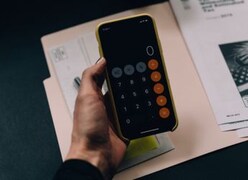- Home
- Mobiles
- Mobiles News
- Apple Refutes iPhone Passcode Bypass Claims by Hacker, Claims It's a Result of 'Incorrect Testing'
Apple Refutes iPhone Passcode Bypass Claims by Hacker, Claims It's a Result of 'Incorrect Testing'

Apple will soon bring the controversial USB Restricted Mode to iPhone and iPad devices with the rollout of iOS 12 later this year. This toggle in the settings will cut off communication through the USB port when the phone has not been unlocked in an hour. With the move, Apple was preventing the use of brute-force attacks to guess the passcode, a method commonly employed by law enforcement authorities and security agencies to crack a locked iPhone. The company had said it was aiming to protect all customers, especially in countries where phones are readily obtained by police or by criminals with extensive resources, and to head off further spread of the attack technique. Despite this upcoming fix to the brute force, an ethical hacker posted a demonstration of a brute-force passcode attack on devices running versions lower than iOS 12. He claimed to have bypassed current protections by sending passcodes combinations at once. Apple replied to the claim by refuting the method, calling it "incorrect testing".
Matthew Hickey, who goes by the pseudonym @hackerfantastic, took to Twitter on Saturday to show how the iPhone's passcode could be bypassed with a simple hack. In a Vimeo video, Hickey is seen connecting a Lightning cable to an iPhone running the latest stable version of iOS 11.3. He also shows, in Settings, that the Erase Data (on multiple wrong attempts) option has been switched on. He then runs his software which sends all passcode attempts ranging from 0000 to 9999 to the iPhone at once, instead of once at a time. The one-minute video shows that the iPhone gets unlocked within seconds of running the software.
He explained the brute-force attack to ZDNet, "If you send your brute-force attack in one long string of inputs, it'll process all of them, and bypass the erase data feature." As you know, passcode bypass protections will erase a phone's data after multiple wrong attempts.
After a day of posting about the brute-force attack, the hacker suggested in a correction to his original claim, that the iPhone's Secure Enclave Processor (SEP) appeared to register less PINs than previously thought, due to instances of pocket dialling and/ or overly fast inputs. "When I sent codes to the phone, it appears that 20 or more are entered but in reality its only ever sending four or five pins to be checked," he explained to ZDNet. Hickey said he reported his findings to Apple before tweeting about them.
In a statement to ZDNet, Apple spokesperson Michele Wyman responded to the Hickey's claim, "The recent report about a passcode bypass on iPhone was in error, and a result of incorrect testing." The company did not provide any details about precisely why it disputes the findings.
For the latest tech news and reviews, follow Gadgets 360 on X, Facebook, WhatsApp, Threads and Google News. For the latest videos on gadgets and tech, subscribe to our YouTube channel. If you want to know everything about top influencers, follow our in-house Who'sThat360 on Instagram and YouTube.
Related Stories
- AI
- iPhone 16 Leaks
- Apple Vision Pro
- Oneplus 12
- iPhone 14
- Apple iPhone 15
- OnePlus Nord CE 3 Lite 5G
- iPhone 13
- Xiaomi 14 Pro
- Oppo Find N3
- Tecno Spark Go (2023)
- Realme V30
- Best Phones Under 25000
- Samsung Galaxy S24 Series
- Cryptocurrency
- iQoo 12
- Samsung Galaxy S24 Ultra
- Giottus
- Samsung Galaxy Z Flip 5
- Apple 'Scary Fast'
- Housefull 5
- GoPro Hero 12 Black Review
- Invincible Season 2
- JioGlass
- HD Ready TV
- Laptop Under 50000
- Smartwatch Under 10000
- Latest Mobile Phones
- Compare Phones
- iQOO Z9x
- iQOO Z9
- HMD Pulse
- HMD Pulse+
- HMD Pulse Pro
- Realme Narzo 70x 5G
- Realme Narzo 70 5G
- Samsung Galaxy C55
- Lenovo IdeaPad Pro 5i
- Asus ZenBook Duo 2024 (UX8406)
- Realme Pad 2 Wi-Fi
- Redmi Pad Pro
- boAt Storm Call 3
- Lava ProWatch Zn
- Samsung Samsung Neo QLED 8K Smart TV QN800D
- Samsung Neo QLED 4K Smart TV (QN90D)
- Sony PlayStation 5 Slim Digital Edition
- Sony PlayStation 5 Slim
- Lloyd 1.5 Ton 3 Star Inverter Split AC (GLS18I3FOSEW)
- Haier 1.5 Ton 3 Star Triple Inverter Split AC (HSU18K-PYSS3BN-INV)
















